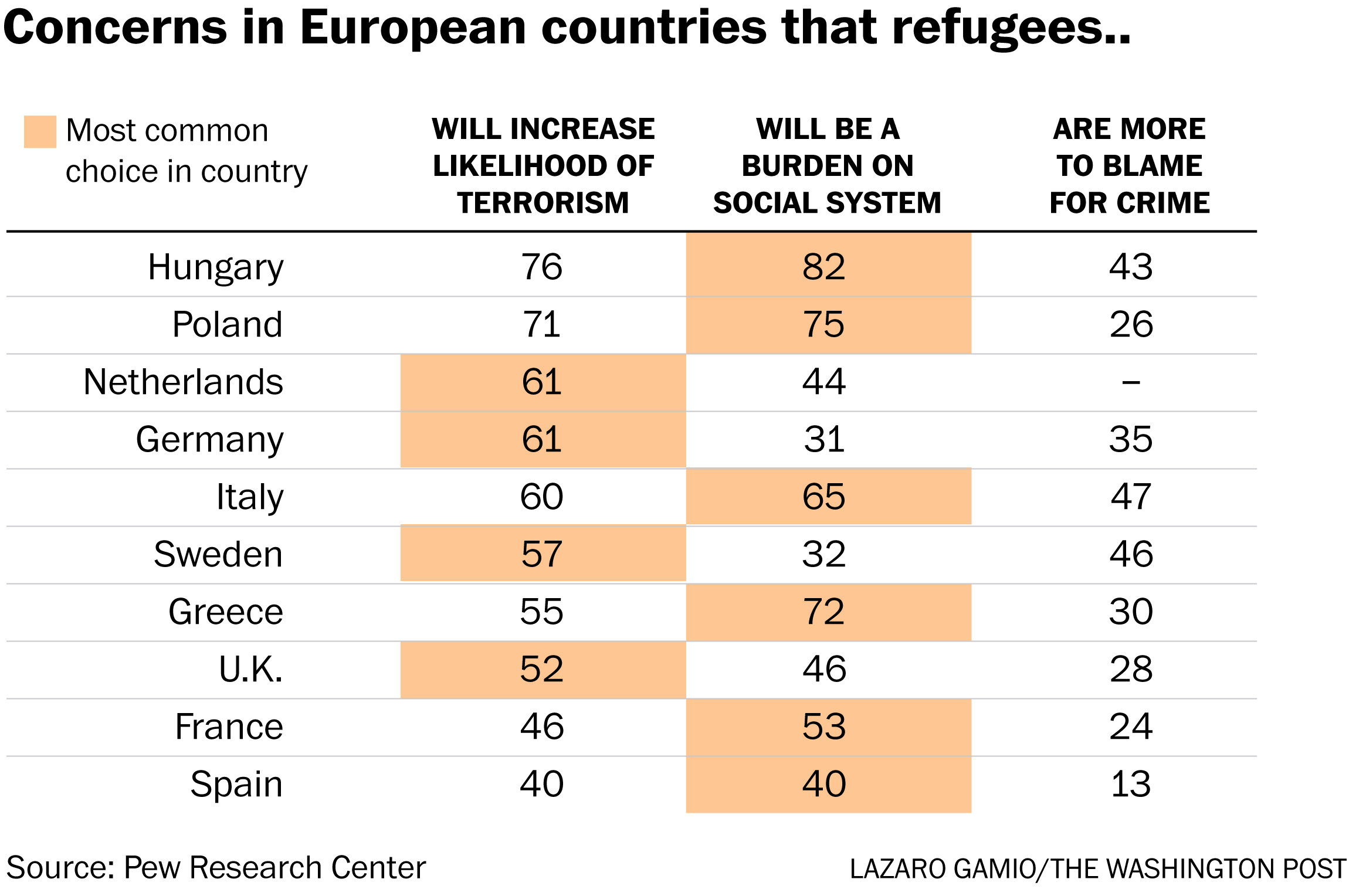A poll released Monday by the Pew Research Center shows that in several European nations, unfavorable views of Muslims seem to have surged in 2016.
Europe’s relationship with its Muslim minority has long been fraught. Over the past year, it seems to have become worse.
A wave of migrants and refugees from Muslim-majority nations have inflamed the debate about immigration on the continent, fueling the rise of far-right parties and probably contributing to Britain’s decision to leave the European Union. At the same time, groups claiming to be inspired by an extremist version of Islam have carried out devastating attacks in France and Belgium.
Now a poll released Monday by the Pew Research Center shows that in several European nations, unfavorable views of Muslims seem to have surged in 2016.
In Britain, the figure jumped nine percentage points to 28 percent. In Spain and Italy, unfavorable views jumped eight percentage points each, to 50 percent and 69 percent, respectively. In Greece, unfavorable views were found in 65 percent of the country — a jump of 12 percentage points from 2014, the last time the question was asked.
Across the 10 European countries surveyed, a median of 59 percent felt that an increase in refugees would increase the likelihood of terrorism in a country — a figure higher than it is for concerns about the economic effect or crime in most countries.
In Hungary, 76 percent of respondents linked refugees with terrorism, while 71 percent of Poles reached the same conclusion. Even on the lower end of the scale, large minorities felt this way: 40 percent of Spaniards were found to believe that refugees were linked to terrorism, the lowest of any countries surveyed.
An unfavorable view of Muslims was also highly linked to the belief that refugees would increase the risk of terrorist attacks.
In Britain, 80 percent of those with an unfavorable view of Muslims felt that refugees presented a terror threat. Only 40 percent of those with a favorable view of Muslims made the same link. A similar gap of 24 to 40 percentage points could be seen in all other countries surveyed.
Pew’s research also found notable splits in views on Muslims and refugees. Generally, those on the right had more negative views of both, with supporters of far-right or populist parties such as the U.K. Independence Party and France’s National Front having the most negative views. Old people and those with lower levels of education also tended to have more negative views across most countries, while young people and the highly educated were more positive about Muslims. Those with high levels of education were also more likely to believe that diversity of races, ethnic groups and nationalities in their country was a positive, as contrasted with less-educated peers, who were more likely to see it as a negative.
H.A. Hellyer, a senior nonresident fellow at the Atlantic Council and the Royal United Services Institute in London and author of “Muslims of Europe: The ‘Other’ Europeans,” says the broad results of the poll aren’t surprising. “You’ve seen a mainstreaming of anti-Muslim sentiment into the political arena over the past few years, if not the past decade,” he said Monday.
Sara Silvestri, a specialist on religion and politics with a focus on Islam and the European Union based between City University London and Cambridge University, says that while she hasn’t noticed a change in anti-Muslim rhetoric in political discourse over the past year, she says the “behavior seems to have worsened,” with organizations such as Britain’s Faith Matters collecting data that appears to show an increase in hate crimes and discrimination.
 Ijtihad Network Being Wise and Faithful Muslim in the Contemporary World
Ijtihad Network Being Wise and Faithful Muslim in the Contemporary World
